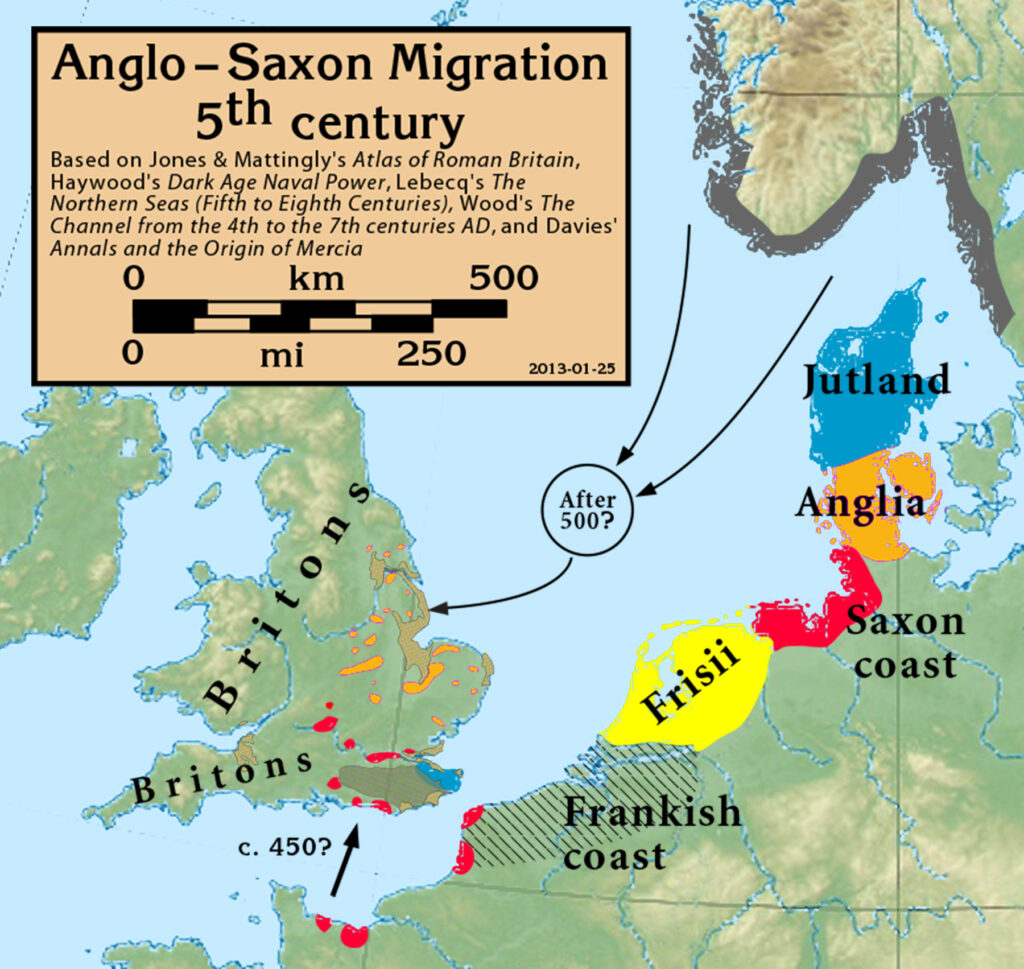The Advent of the Anglo-Saxons 3: Blood Ties

So, did the Anglo-Saxons arrive en masse, conduct a programme of ethnic cleansing and occupy the land? Or was it a case of a top-level takeover that gradually imposed its language and culture on the lower levels of society? With two competing accounts of the origins of the Ango-Saxons, neither of which could be verified, some other method of deciding what actually happened in the centuries after the Romans left was needed.
The evidence was inconclusive and scholars were divided. Then along came DNA testing. Surely that would provide the answer?
There have been many studies attempting to establish the ethnic origins of the peoples of Britain but unfortunately the first wave of studies provided such wildly contradictory answers that no one was any the wiser. Turns out that genetic analysis for origins is a hugely complex business that also requires large and robust sample sizes.
However, further studies that take account of these difficulties seem to be gradually moving towards some likely conclusions. Firstly, that there is a very strong regional basis to genetic identity in Britain: the Cornish are different even from the Devonians, let alone with respect to the rest of the country, as are the north Welsh from the south Welsh, the Scots and the Cumbrians.
The native population of Britain derives from the settlers who first arrived as the Ice Age was waning and it was still possible to walk to Britain, before the land bridge was cut around 6,500 BC. But over that foundation population, the only significant influx of peoples, localized in the south and centre of England, has their roots in the Jutland peninsula and northern Saxony, the traditional homelands of the Anglo-Saxons. Assuming that in the 5th century the population of England was about a million, then somewhere between 250,000 and 400,000 people came from abroad. So it seems that the answer as to the origins of the English lies somewhere between the two opposing views: the native inhabitants were not completely pushed out, but this was not just an elite takeover. In comparison, the Normans have left very little genetic footprint on the peoples of Britain: the Conquest really was an elite takeover.
The most recent archaeological work backs up this genetic analysis, with evidence of Anglo-Saxon and Britonnic settlements continuing near to each other, but there being almost an apartheid like separation between the two communities in the first generations, with the barriers slowly coming down, until eventually, after a couple of centuries, they merge. So the question of the origin of the English depends in great part on the part of the country where the question is asked – which is probably what we would have said all along, comparing someone from the Broads to a native of Cornwall.
0 Comments